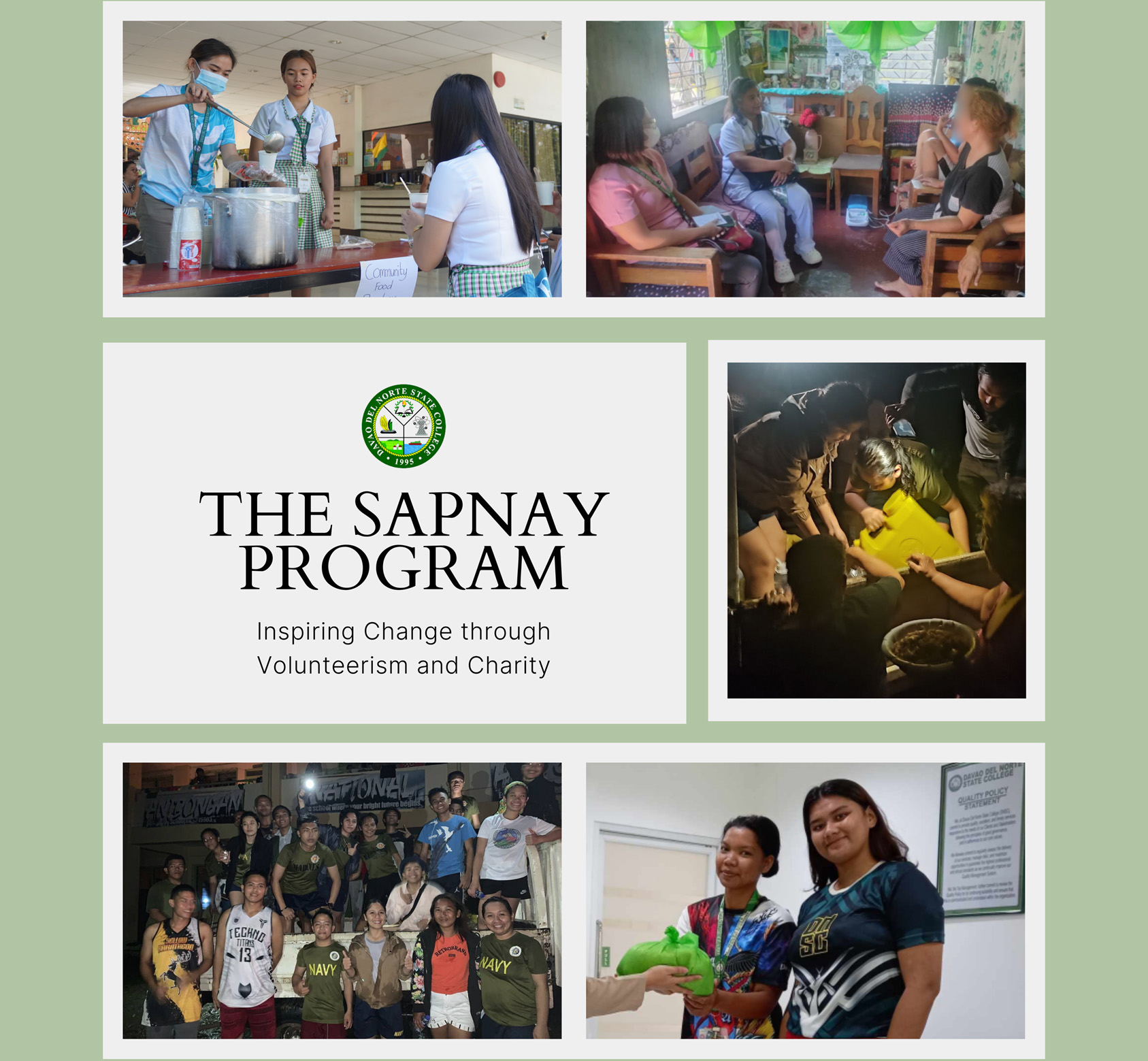
Sapnay is a Binisaya term meaning “to cradle” or “to hold gently and protectively”. The Sapnay Program was inspired by the aspiration to provide a safe, caring, and humane environment for the students of Davao del Norte State College. It champions one of DNSC’s core values: stewardship, which emphasizes being of service to others, especially those in need.
The urgency to start the program was intensified by increasing reports from the Guidance, Counselling, and Testing Office about students struggling with mental health and nutrition.
The College has also called for the spirit of volunteerism, particularly in providing interventions and support to students during accidents, calamities, and crises. These cases contributed to the formation of the first group of pioneer volunteers of The Sapnay Program.
Projects
As of fourth quarter of 2024, one year since its inception, the program has grown to include four projects, each aimed at supporting specific beneficiaries:
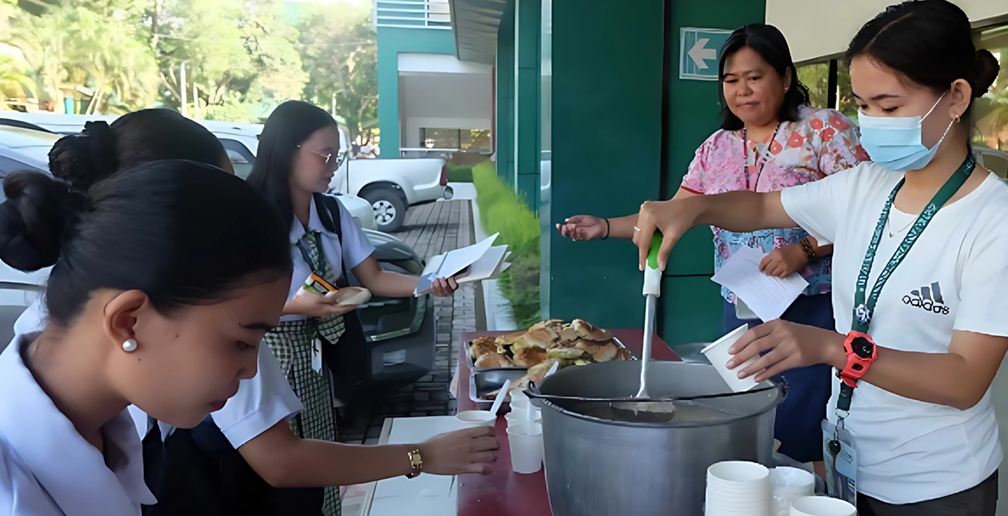
Project GASA
Generous Assistance, Sharing Abundantly
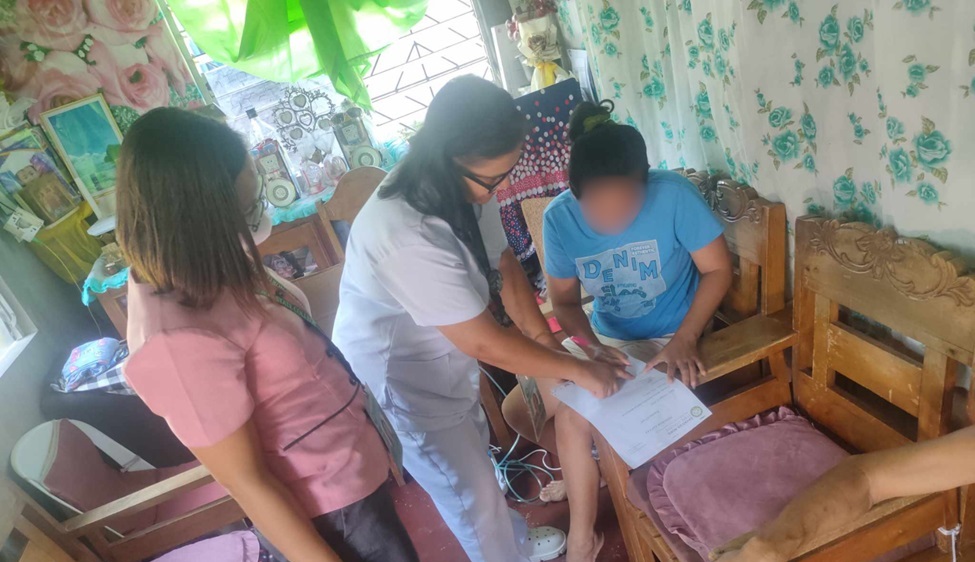
Project AMUMA
Advocacy for Mental Health Upliftment and Medical Assistance
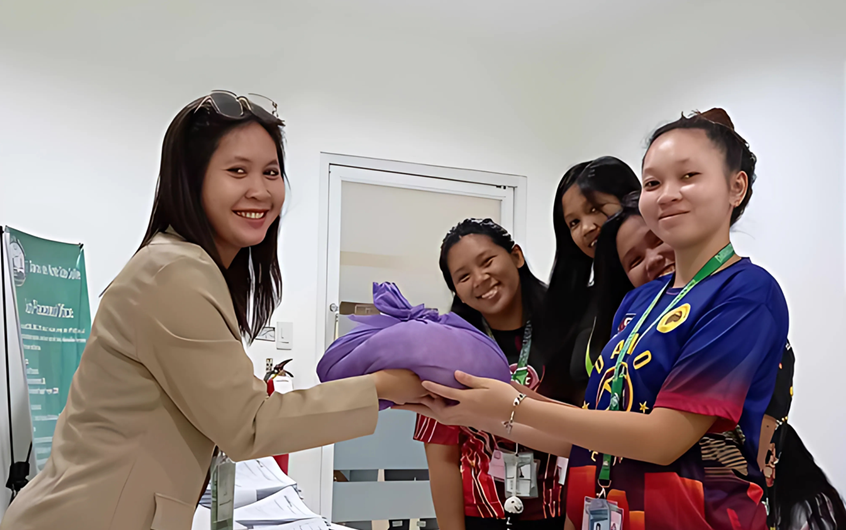
Project BUHI
Basic Utilities and Help Initiative
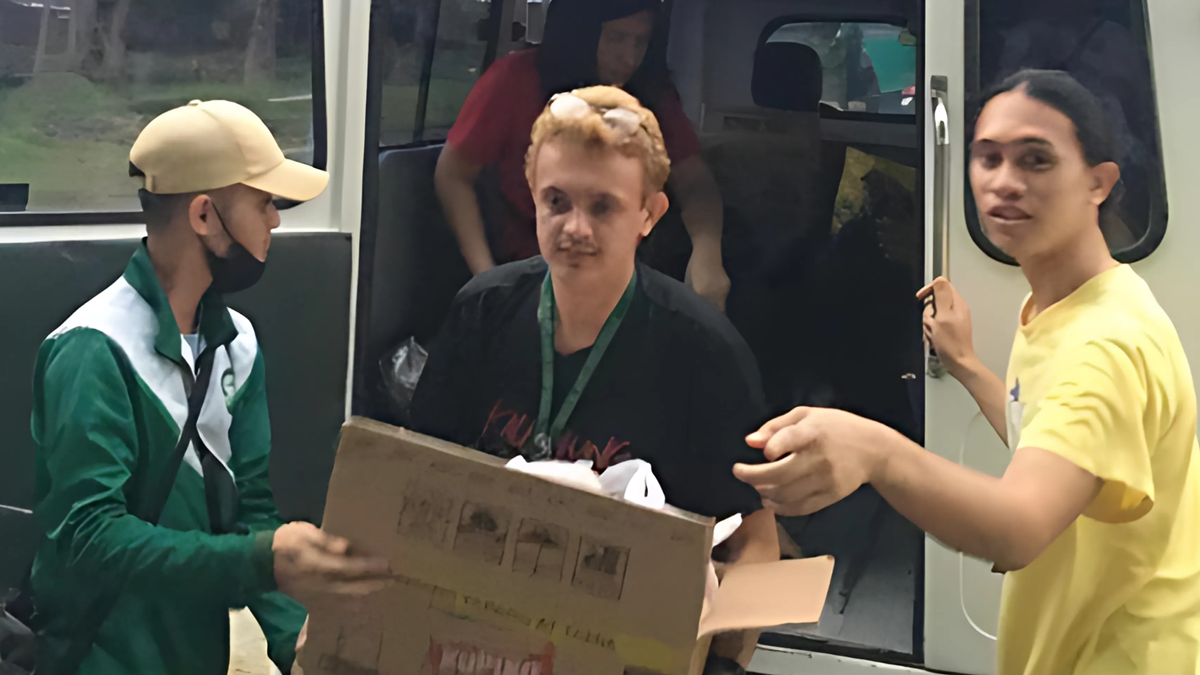
Project DASIG
Direct Assistance for Students in Grave Situations
Why Help?
The data from the Student Profile for Academic Year 2024–2025 of Davao del Norte State College underscore the critical need for support among its students. Here are key reasons why volunteerism and donations are important:
Over 75% of DNSC students come from families with a monthly income below PhP 13,800.
This financial strain makes it challenging for students to afford basic educational needs, let alone respond to unforeseen needs due to disasters and crises
Only 36.4% of students have parents who attended college.
This lack of educational support at home can hinder students’ academic progress and aspirations, making external assistance crucial.
Only 12.6% of students receive aid from the Pantawid Pamilyang Pilipino Program (4Ps).
This gap leaves many students without the financial support necessary to succeed.
With 8.2% of students belonging to Indigenous Peoples Cultural Communities (IPCCs) and many from Geographically Isolated and Disadvantaged Areas (GIDAs),
These students face additional barriers to education, including limited access to resources and support.
By offering resources and supporting students, volunteers can help break the cycle of poverty and contribute to the overall development of communities.

How to Help?
Everyone is welcome to contribute to the project. Donations in various forms are accepted and is tailored to the needs of the beneficiaries.
For monetary contributions, you may reach out to Ms. Anjenel M. Davin, the TSP Treasurer, at the DNSC Budget Office.
Online monetary donations are also accepted via GCash using the number 0930-183-0449.
In-kind donations can be delivered to either of the following locations:
• DNSC Gender and Development Office, 3rd Floor,
GAD Building
• Office of the Guidance, Counselling, and Testing Services, 1st Floor, OSDS Building
Every peso counts. Every person matters.